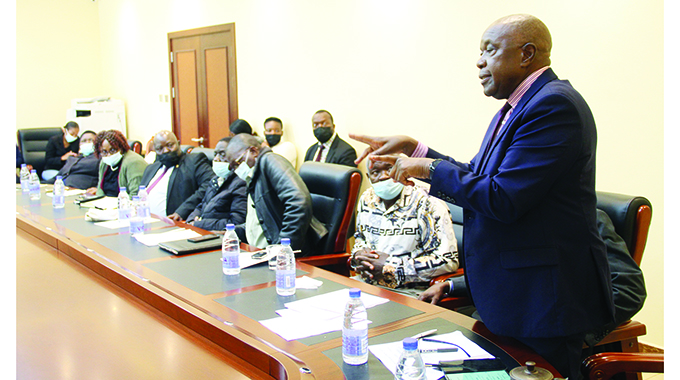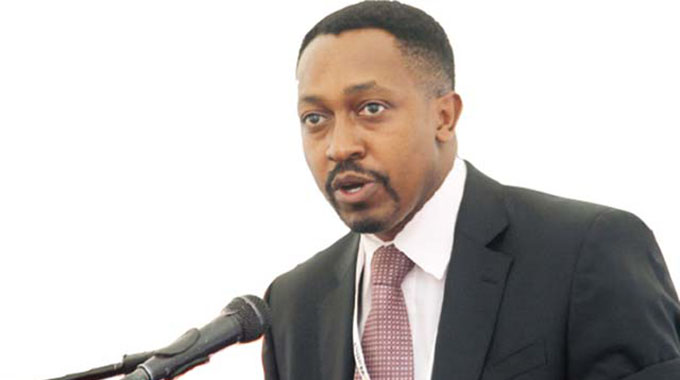Defending foreign investment a paradigm shift

Herald Correspondent
THIS week there was a new development, a development observers, stakeholders and policy-makers must watch closely as it represents a paradigm shift that will set the country on a whole new path of managing foreign direct investment.
Veterans of the Zimbabwe’s liberation struggle, under the umbrella body of the Zimbabwe National Liberation War Veterans Association (ZNLWVA), backed foreign investors who have come under attack from Western-sponsored Civic Society Organisations (CSO) under the guise of civil society.
A bit of perspective; civil society in the true sense, should represent a wide array of ordinary people’s interests and reflect their condition but in the case of the Western sponsored CSOs, it is apparent there is a nefarious agenda.
The immediate trigger was the extraordinary attack on Chinese investments in Zimbabwe, which is part of an ongoing co-ordinated war by a phalanx of Western sponsored political opposition, civil society and the media against Chinese investors in the country.
Although there has been a significant pushback against the attempts by these forces to bully and run the Chinese out of town, it is the springing into action of war veterans that is a game-changer.
War Veterans, and the association — led by Cde Christopher Mutsvangwa — are an organic grouping comprising of people from across the country whose meeting point is the patriotism that led them to take up arms against settler rule, and have continued to fight inequalities to this day.
Among major highlights of roles played by war veterans is the historic land reform programme that led to the reconfiguration of the land tenure systems and a final break up of the colonial stronghold on primary means of production.
The war veterans constituency has been key in supporting the ruling Zanu PF party and it has, as an affiliate, led from the front especially in the post-2000 era.
It was the war veterans as a cohort that portented, as early as 2014, the birth of the Second Republic through their support for President Mnangagwa.
The composition, influence and interests of war veterans make them a true and organic civil society whose impact in Zimbabwe is felt to the marrow.
Promoting and protecting investments: a paradigm shift
The defence of foreign investments and capital in Zimbabwe by war veterans, happening in the context that the veterans have assumed a role to promote and protect investments in the country, is a huge paradigm shift. This can be analysed on at least three vantage points:
First, war veterans have changed tack to become pro-business, in the process spelling out an evolving consciousness in the movement at a time that Zimbabwe, under President Mnangagwa, has pronounced numerous policies that seek to elevate the country’s socio-economic status, supporting businesses and their smooth operations.
This is under-girded by peace, stability and security.
That war veterans are guaranteeing and underwriting these to investors is a huge statement. War veterans were previously known to be disruptors and agitators themselves. Now they have become the country’s biggest supporters of business. They are also seeking to participate in business — big businesses — themselves not just to be recipients of charity.
Secondly, and connected to the above, war veterans have stated that they are not worried about the origin, colour creed of investors. All investors are equal when they answer President Mnangagwa’s call that, “Zimbabwe is Open for Business”.
War veterans argue that all businesses that invest in Zimbabwe become corporate citizens and should be protected by the law and enjoy the rights accorded to all citizens.
They have invested in the country against all odds, having faith in an economy that previously was unpredictable and remains under sanctions. Some investors such as diamond miner Anjin Investments, for example, have been sanctioned and punished by the United States for their investment in Zimbabwe.
War vetarans’ decision to stand as a bulwark against attacks on businesses is a new level of consciousness.
It is on the basis of this vastly superior intellect and consciousness that war veterans have stated that they will defend corporate citizens from all over the world, including from Western countries because they are not fighting a race but racism, something that they were taught during the liberation struggle.
Thirdly, this new development mirrors President Mnangagwa’s own thinking as a pro-business and reform minded leader. It will be recalled that in the Second Republic contentious policies such as indigenisation were relaxed to allow for better investment inflows unencumbered by taxing demands on equity and other entitlements, which previously discouraged investments. Indigenisation was anchored on poorly harnessed nationalisation thrust and opened itself to abuse and disruption of businesses and disregard of the rule of law.
Now, taking a cue from the President, war veterans have come out in support of capital, rule of law and economic stability that the Western-funded civil society organisations.
First they came for the Chinese…
The attacks on Chinese investors in Zimbabwe should be seen as a threat to all non-traditional, non-Western investments in Zimbabwe and beyond, as the West is seeking to stop the competition by other emerging powerhouses such as India, Brazil, Turkey, Bulgaria, Korea, Japan, etc.
Hounding China out of the country inevitably sets off a domino effect whereby other investors such as those named above will be destroyed through the agency of Western-sponsored civil society organisations masquerading as communities or rights groups.
This is precisely why the actions and discourses in the mainstream and social media have been characterised as racist and xenophobic.
In fact, issues such as human, labour, community and environmental rights — which are being blamed on Chinese investors — will likely be stuck onto any other country of the world. The West knows how to manipulate and influence discourses and politicking over these issues.
Ultimately, the West seeks to dominate other countries through control of resources and keeping competition week.
With this in mind, the current attacks on China must be taken seriously, holistically and comprehensively as they represent a test case.
This is even truer for communities at the centre of natural resource conflicts. Communities are right to demand a fair share of resources found in their localities. They are right to demand jobs and good, humane working conditions appropriately remunerated.
However, communities should not allow themselves to be used by people and organisations with ulterior motives who seek to exploit differences that arise between investors and communities.
As amply demonstrated and experienced over the years, those purporting to champion community causes will be doing that for their self-aggrandisement and pleasing masters in some far-flung places in America and Europe.
People of Zimbabwe have the agency to define the rules of engagement with investors. True and organic civil society movements like the war veterans are there to push this agenda with revolutionary results.
In light of what has been happening regarding the bullying and xenophobic attacks on Chinese corporate citizens, the intervention by war veterans represents a game changing moment of history.
The writer is based in Harare and runs a media, research and think tank organisation.









Comments